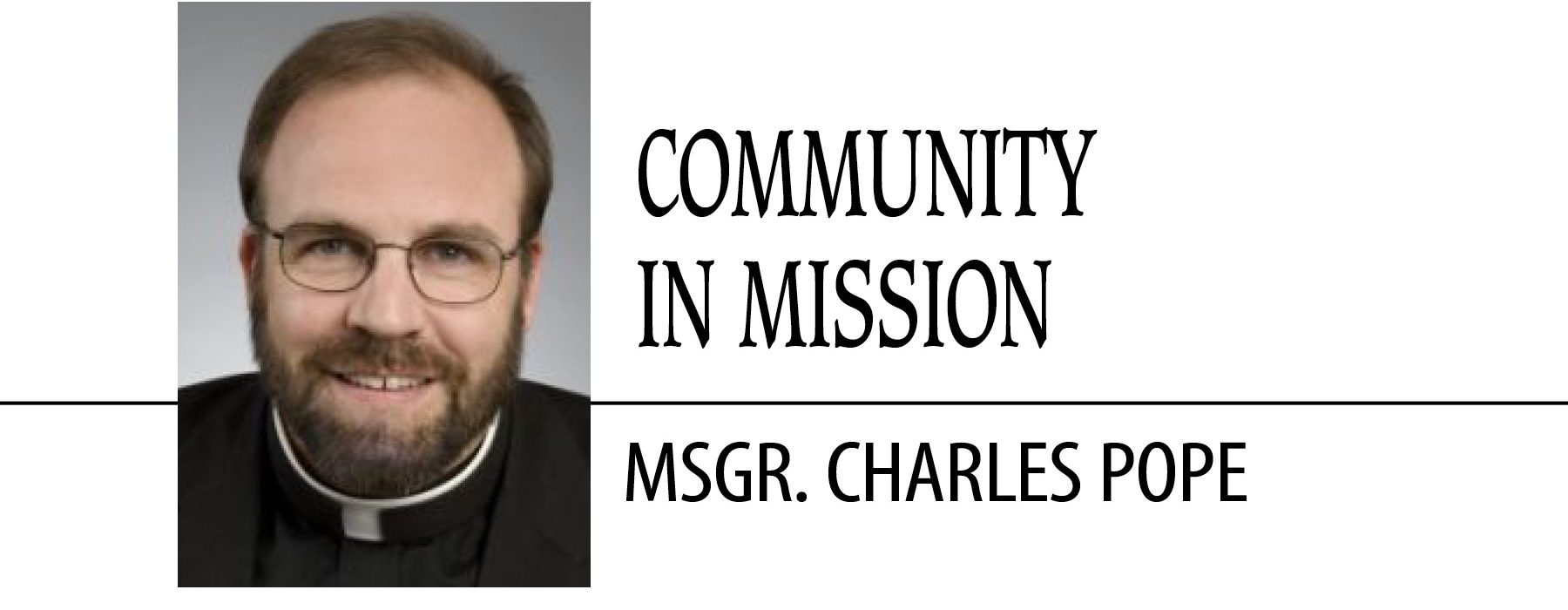March 1, 2020 // Perspective
On the need for moderation, even in learning
A while back in the Community in Mission blog found at blog.adw.org, I reflected on the puzzling truth that we can endure more pain than pleasure. We seem to be able to endure a lot of pain, but we can endure only a little pleasure at a time. In fact, too much pleasure actually brings pain: sickness, hangovers, obesity, addiction, laziness and even boredom. You can read more of that in my Jan. 28 entry. But the point is that pleasures and good things are only enjoyed in moderation.
Something similar may be said for wisdom and knowledge. We learn best in small portions. For example, consider a teaching by St. Bernard, who is reflecting on a verse from Sirach in this sermon:
“If you have found wisdom, you have found honey. But do not eat so much that you become too full and bring it all up. Eat so that you are always hungry. Wisdom says: Those who eat me continue to hunger (Sirach 24:31). Do not think you have too much of it, but do not eat too much or you will throw it up. If you do, what you seem to have will be taken away from you… Solomon says: A man who eats too much honey does himself no good.”
And so, it is that we learn and gain wisdom slowly and in stages. A kind of four-fold moderation is suggested here.
1. The moderation of material.
Too much, all at once, overwhelms us. It is a little like the image of trying to fill a small paper cup from an open fire hydrant. Most of water escapes and is wasted. The cup is better filled at a small faucet. Learning occurs best in small bite-sized portions.
2. The moderation of time.
Most teachers know that an hourlong class is best, and 90 minutes is the maximum. Any longer and eyes glaze over and the diminishing returns set in quickly. Further, we all need time to reflect on what we learn. Acquiring information is not the same as learning. Reflection and consideration as to what something means and how it relates to other things is what makes for knowledge and wisdom.
3. The moderation of mastery.
We learn in stages. Foundational principles must be mastered before more complex realties can be understood. Personal development also plays a role. I have found, for example, that certain Scriptures suddenly make sense to me or stand out in ways they did not before. This is often due both to our growth in knowledge and also to our personal growth in maturity and holiness. The Latin Fathers of the Church said of Scripture that it is “non nova, sed nove” – “It is not a knew thing but it is understood newly.” And thus, as we make our journey and if we are faithful, our understanding of Scripture deepens.
4. The moderation of novelty.
There is a saying: “Repetition is the mother of studies.” While learning new things is important, so is remembering and recapitulating what we already know. One of the things that most deeply ingrained Scripture in my soul was the repeating cycles of readings in the Mass and in the Divine Office.
Yes, moderation is the key, even in learning the things of God. A slow, steady, lifelong learning is what makes for a wise soul. Though wisdom comes from God, it, like all graces, interacts which our nature, and it is our nature to grow slowly and in stages. There are surely growth spurts, but the general rule is slow, steady and in stages. Thus, in your prayer and spiritual reading, a little each day adds up. But always remember to spend time reflecting on what you read and reviewing from time to time what you have read and learned in the past. Yes, a little each day helps keep the devil away.
The best news. Delivered to your inbox.
Subscribe to our mailing list today.






